- Home
- Photoshop ecosystem
- Discussions
- Something for the weekend - Part 22 - See the Ligh...
- Something for the weekend - Part 22 - See the Ligh...
Something for the weekend - Part 22 - See the Light!
Copy link to clipboard
Copied
Hi
This is Souter Lighthouse on the North East coast of England. Built in 1871, it was the first lighthouse in the world designed and built specifically to use alternating current. Its 800,000 candle power carbon arc light ran until 1914 when it was replaced by an oil lamp. It was converted again, in 1952, to run on mains electricity. It ran on until 1988 when it was decommissioned. It is now owned by the National Trust and is open to the public.
So the challenge this week is to bring the lighthouse back to life. Will you make it night and light the lamp? Will you transport it to a new location? Or will you give it a new purpose entirely?
Anything goes as long as it meets the forum rules on decency, copyright etc.
Anyone is welcome to have a go - whether you are a complete beginner or a Photoshop expert.
There are no prizes - just the chance to practice, show off, or bring a bit of humour and fun.
When posting back your edited images please use jpeg and downsize to 1200px on the long side.
To download the image below without the forum scaling artefacts, right click and then use Save Image As / Save Picture As (or similar depending on your browser).
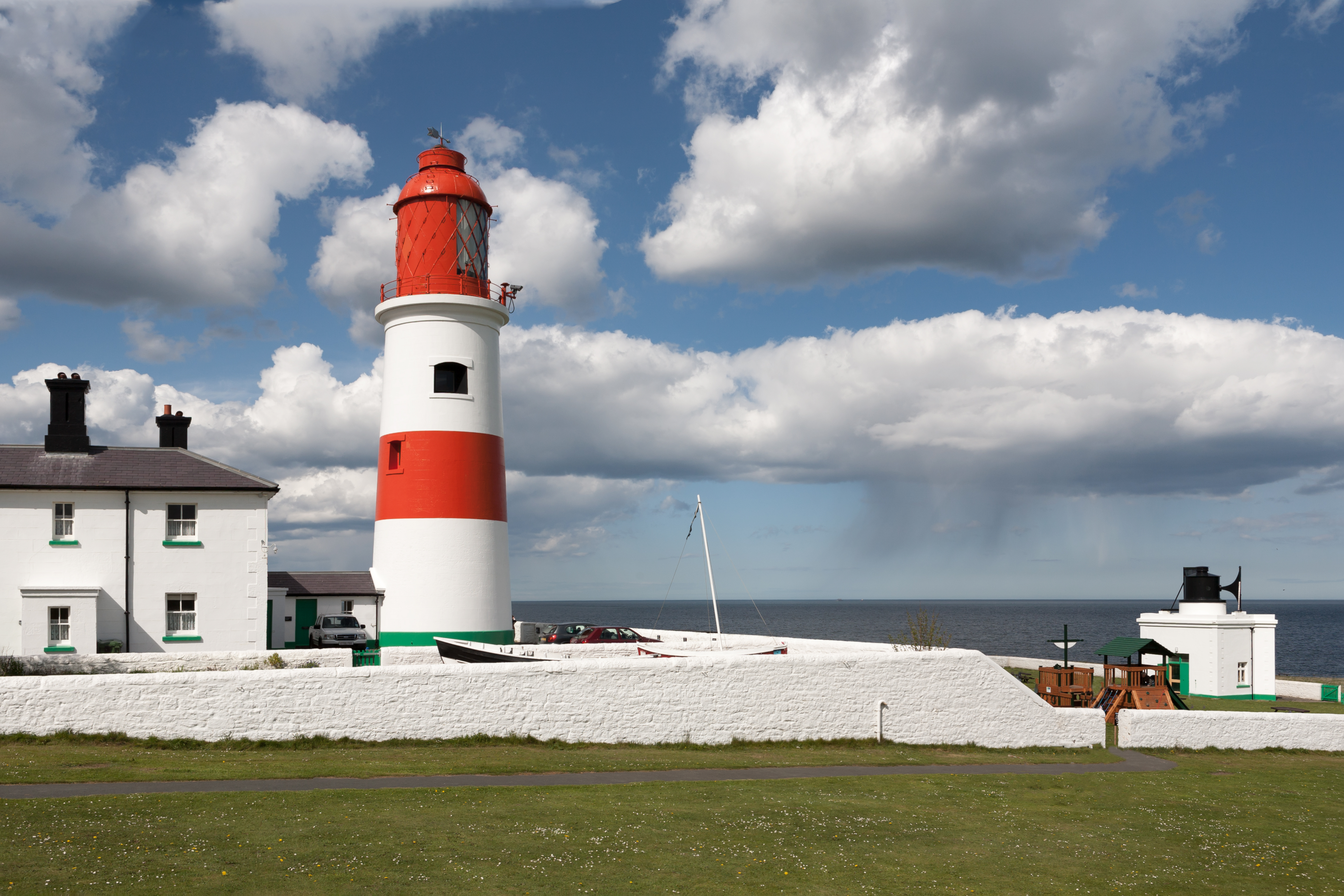
Have fun.
Dave
Explore related tutorials & articles
Copy link to clipboard
Copied
Just for Jane....
The lighthouse is real , everything else, including the light beam, is a 3D model.
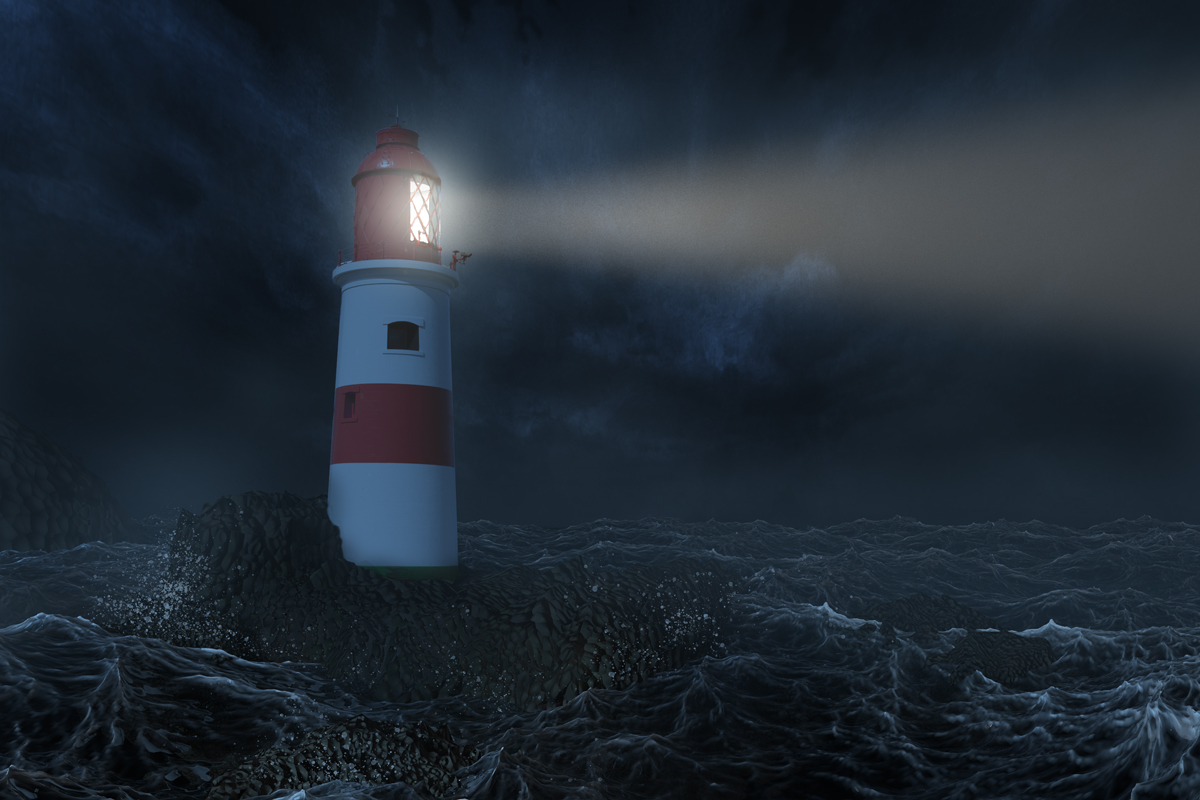
Dave
Copy link to clipboard
Copied
Wow, wow, wow!!! I was starting to feel bad for having said something, but that is truly amazing, Dave!
Did you use Blender or something else?
Copy link to clipboard
Copied
Thanks Jane
I used Blender to create the scene, and texture it, then rendered it twice - the first time with the mist which used "volume scatter" in a giant cube to scatter the light, the second time with no mist.
Then I put the two renders together in Photoshop along with the masked real lighthouse and added a few splashes with one of Kyle's splatter brushes.
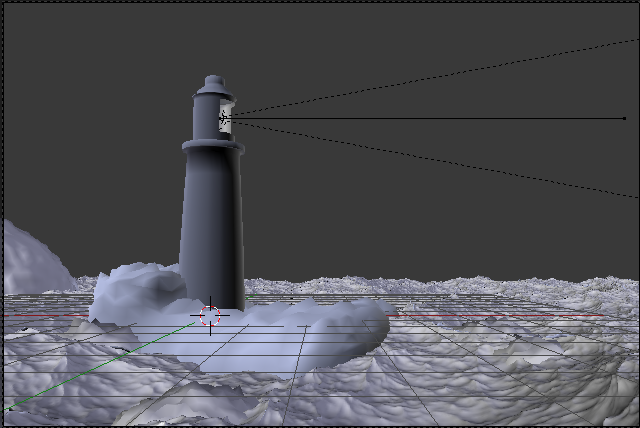
Dave
Copy link to clipboard
Copied
Just curious, does everyone here -- except me -- understand what you are saying?
I can figure out splashes with a splatter brush, but that's the only part of it.![]()
Copy link to clipboard
Copied
That's good feedback Rista, let me try again.
I made the scene as a set of 3D "models" in an application called Blender. It is more powerful than 3D in Photoshop but the principles are the same. These computer models don't exist in real life they are just a set of instructions that tell the computer where each surface of the model is in "virtual" 3D space.
To each model I applied the textures - which give the surfaces their colour and texture them (the same way as paint would give colour and texture to a surface in 2D). In 3D though they describe how light bounces off the surface.
The "mist" was created by telling the computer that the entire model was contained in a giant virtual cube which was filled with particles that would scatter the light in the same way that real mist would do. So shining a virtual spotlight through the mist resulted in the cone of light. The "moonlight" was also scattered in the "mist".
The rendering step is where the 3D application traces the individual paths of light through the model so that you end up with a 2D coloured image based on what the camera would see if it was looking at a real life model. It is quite computer intensive, so takes a while to do.
After that it is just compositing the resulting 2D image layers in Photoshop.
I hope that helps. Blender is a free download and is well worth getting to know as you can achieve things that are very hard to do in 2D. I only wish Photoshop 3D was developed further. ![]()
Dave
Copy link to clipboard
Copied
Dave, thank you for taking so much trouble to explain. I didn't mean to make you go through that.
Just looked at a brief U-Tube video. Fascinating and probably much too complicated for me, but I expect to have some extra free time soon and I think I'll download it just to take a closer look. It seems my system could handle it.
Thanks again, you are very kind.
Copy link to clipboard
Copied
No problem at all. If you do decide to give it a go there are some good start out video tutorials here :https://www.blenderguru.com/
Dave
Copy link to clipboard
Copied
I've been thinking that this looks like a big black speaker horn on top of the white building, in which case It has to be a foghorn.
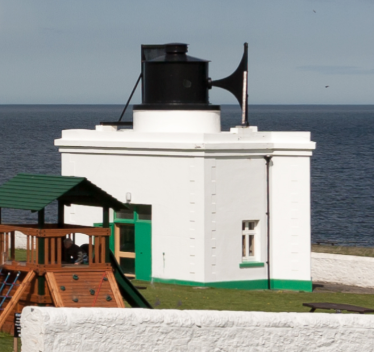
And indeed it is, and this is what the Souter foghorn sounds like.
This is at Sumburgh and shows what goes into sounding a huge foghorn. I love the two big compressed air tanks at 1:20, and the large diameter pipe needed to get the volume of air to the horn. You'll be thinking this looks old fashioned, but it is state of the art compared to Dave's part of the world, where they have a pit pony on a over sized hamster wheel to pump up the air.
Copy link to clipboard
Copied
Dave, the new batteries is one of my all time SFTW favourites. I love a nice clean graphic and the Bigacell gag is super cool. I at first had trouble seeing the intersection between the two batteries, and for one terrifying moment, thought it had two positive terminals. That would be like introducing antimatter into our universe, and the only plus side of that (SIC), is that it would almost certainly have bought Stephen Hawkin back to life.
What I don't understand is how the battery cover is right there next the lighthouse, when everyone knows that the first thing that happens when you remove the cover and put it down in a safe place, gremlins come along and hide it. It's a fundamental rule of physics. Exactly the sort of thing that Scotty would tell Captain Kirk when he asked WTH the battery cover has disappeared to?
Semaphoric, that's an equally clean graphic and great idea. I like it a lot.
Copy link to clipboard
Copied
Hi
I'm glad to see they are still coming in. Love the lighter, Semaphoric.
Jane - no problem at all with comments - all criticism is welcome. ![]() I'll do a night one with the beams visible.
I'll do a night one with the beams visible.
Trevor - I'm glad to see you got the lasers in , I was getting worried that you'd lost them.
Thanks for the comments on the batteries. I made a 3D model of the lighthouse with a hole in the wall along with the batteries and wiring. Then I used Photoshop to composite it with the original 2D image. The use of 3D made it easier to get the shadows and lighting of the interior to match - just a matter of placing the lights in the right place.
Dave
Copy link to clipboard
Copied
Sea Level rising.
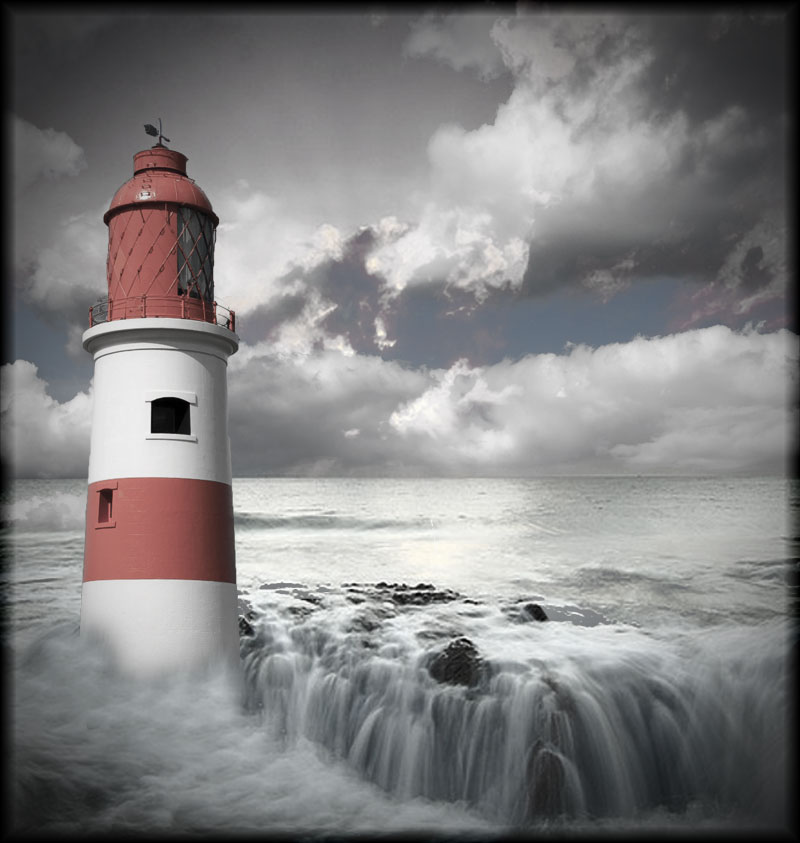
Copy link to clipboard
Copied
Just beautiful, Rista!
They had to move the lighthouse in Cape Hatteras or it would have met the same fate:
https://www.nps.gov/caha/learn/historyculture/movingthelighthouse.htm
Copy link to clipboard
Copied
Thank you, jane-e and for the link.
I dimly remembered such a story and had it in mind, but could not remember where it had happened.
Copy link to clipboard
Copied
Rista,
We were there with friends just before they closed it to prepare for the move. My husband and I were the only ones in our group who ventured to climb to the top. It is 257 steps, the equivalent of a 12-story building.
Copy link to clipboard
Copied
It just needs 'Friends' in high places!
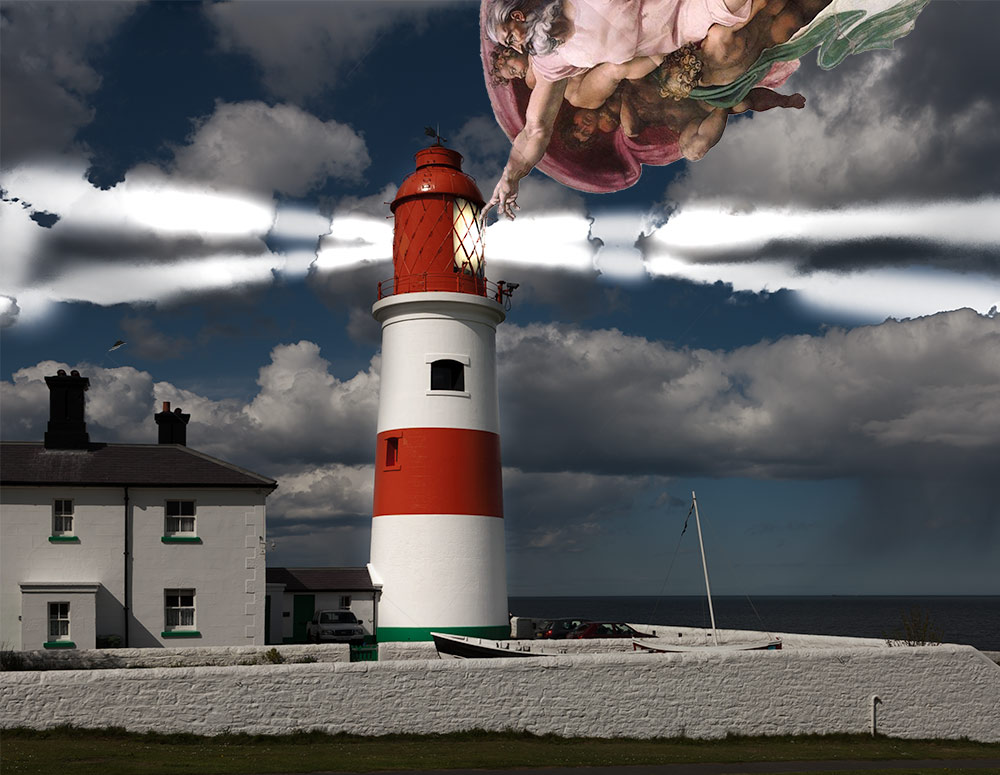
Copy link to clipboard
Copied
During the Oil Lamp era:
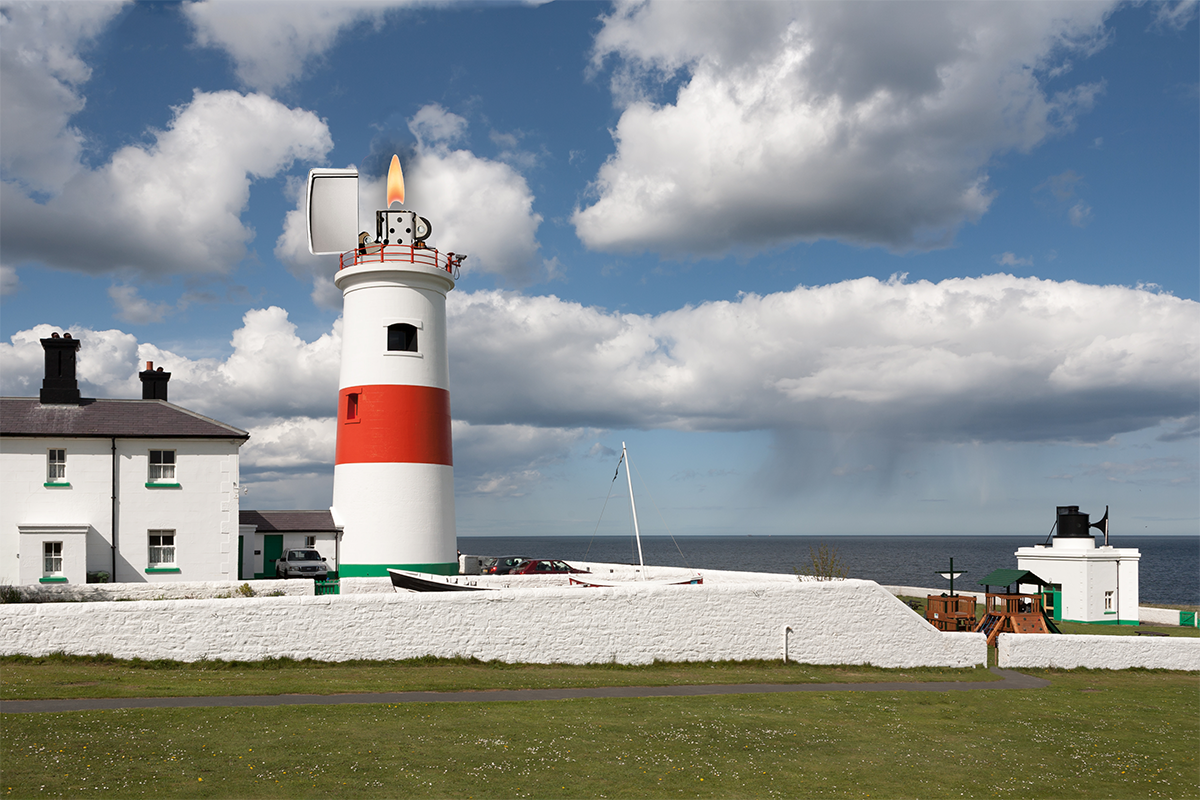
-
- 1
- 2


